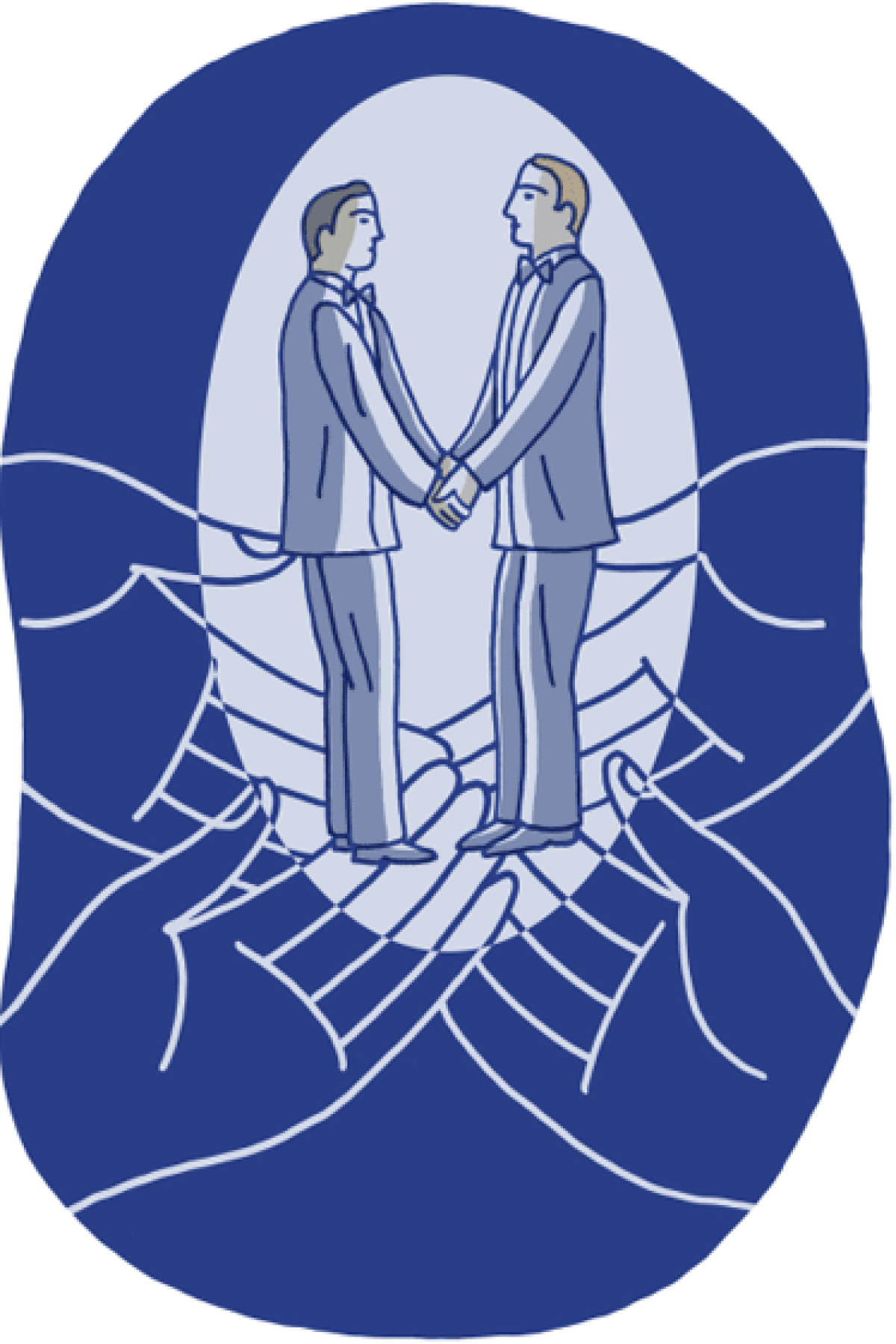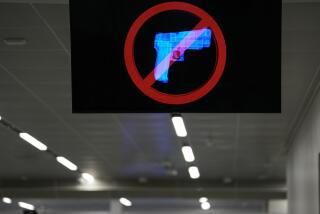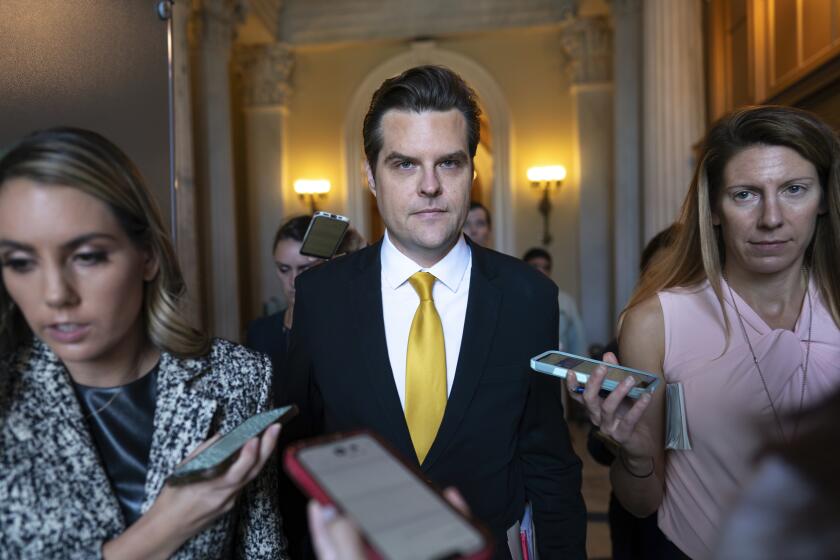Gay rights: Why marriage matters

As Americans await U.S. Supreme Court rulings this month on two same-sex marriage cases, June â the traditional month for weddings and pride parades â gives gay people the chance to reflect: How have their own lives and views changed since a Hawaii court ruling first thrust marriage equality onto the national stage 20 years ago? And what might a fully legal marriage mean to them?
For many gay people, including for me, the weight of this prospect has taken a while to sink in. Each time a hurdle to equality is removed, I find myself looking to the next roadblock. When the Supreme Court struck down sodomy laws 10 years ago, I applauded â but quickly lost myself in the fight to repeal âdonât ask, donât tell.â When Massachusetts became the first state to legalize gay marriage, I was thrilled â but my eyes focused on the 49 remaining states. Even now, as the court appears poised to strike down the federal Defense of Marriage Act, I fear that the related ruling on Californiaâs Proposition 8 could fall short of ending marriage bans in all states.
VIDEO OP-ED: Fighting for gay marriage and immigration reform
Still, an end to DOMA might finally resolve something thatâs long hindered my ability to fully celebrate progress on marriage equality. It has to do with the meaning of marriage as a legal right, one fully recognized by community and country without reservation.
This symbolic and psychological meaning of marriage â its power to shape how we feel and act â has not always been apparent to many LGBT Americans. And not all of us have valued it. Indeed, in the 1970s and 1980s, when just a handful of visionaries had uttered âgayâ and âmarriageâ in the same breath, many LGBT Americans took little note of the idea and some actively opposed it.
They were focused more on securing privacy for their scorned relationships than winning the kind of public recognition that marriage represents. Some sought to challenge what they saw as a patriarchal and confining institution rather than to join it. Others made the principled argument that marriage privileged coupling over building community, a case buttressed by the heroic webs of support formed to respond to the AIDS crisis.
TIMELINE: Gay marriage chronology
In interviews I conducted for a history of the gay-marriage movement, a prominent lesbian legal activist told me she was concerned about âleaving some of our own people behindâ by fixating on marriage. Such a focus meant foreclosing on a broader range of options for recognizing diverse family â and human â relationships. As another respected colleague of mine put it: âAs strangers to marriage for so long, weâve created loving and committed forms of family, care and attachment that far exceed, and often improve on, the narrow legal definition of marriage.â
But such ambivalence toward marriage began to wane as advocates recognized that the issue was ideal for spurring millions of water-cooler conversations about the equal worth of same-sex love. And over time, the idea of marriage equality not only attracted more support from straight Americans but also won over gays themselves.
Polls confirm this trend. A 2007 Hunter College poll shows that younger gay people rank marriage and parenting rights at the top of their list of policy priorities, while gays and lesbians over 65 hardly rank them at all. A Harris Interactive poll before last fallâs presidential election found that 86% of LGBT Americans under 30 âstrongly supportâ marriage equality, while only 53% of LGBT seniors do.
FULL COVERAGE: Prop. 8 and DOMA
Still, until recent years, the marriage equality fight seemed centered on the more than 1,000 rights and benefits that federal and state governments offer married couples.
But as civil unions and other arrangements emerged to plug those legal gaps, an even stronger motivation for marriage equality surfaced: gaining equal respect and recognition for taking the grown-up step of committing your life to another. And this impulse is not just the wish of a despised minority to be accepted by the majority. In my view, itâs a fundamental ingredient of what marriage is â for gays and straights alike.
The focus on concrete benefits, for all their value, downplays a crucial function of marriage: to engage our community not only in publicly celebrating our private commitments but also in enforcing them.
I came to understand this role when a straight friend of mine told me as much on the eve of her wedding. âItâs a way of enlisting my friends, family and community,â she said, âin supporting what will surely be a difficult set of commitments over time.â
Marriage is about a coupleâs intimate choices, yes, but itâs also about the interplay between public recognition and private feelings and behavior. Internalizing that the people around us, and the law of the land, acknowledge our commitments can help us remain steadfast when the going gets tough.
Looked at this way, marriage is not just a commitment between two people but a shared public identity. It is freely chosen but ultimately constricts an individualâs freedom in the interest of greater goods: that of the couple and that of their community and nation.
I often hear gay people express some variety of this sentiment: âI donât need the stateâs stamp of approval for my loveâ or âI donât care what straight people think of my relationship, so long as I have equal rights.â These views reflect a belief that caring about the opinions of others is a weakness. It seems disingenuous, however, to seek public recognition for our love on the grounds that our relationships are entirely private affairs.
If legal benefits were all that mattered, civil unions would have been enough. Yet separate is inherently unequal â because marriage is not just about inheritance rights and tax law but about sharing in the symbolic space of first-class citizenship. Gay people deserve the same access to the institution of marriage enjoyed by straight people because our need for support is identical to theirs. Our relationships and our communities deserve no less.
This is why having the country I love (and not just my state) recognize my relationship with the man I love matters to me. Itâs also why gay support (and donations) for President Obama surged when our nationâs leader endorsed same-sex marriage last year. This change is not merely symbolic nor just rhetorical. Marriage plays a central role in tying families, and our country, together.
No court will decide if I marry Dom; heâll decide that when I propose today. But weâll have so much more to celebrate if the Supreme Court holds that, in the eyes of our United States, all marriages are worth defending. Sure there is more work to do, but if the court strikes down DOMA, as I think it should, it will be a moment to savor â fully and without reservation.
Nathaniel Frank, author of âUnfriendly Fireâ and a visiting scholar at Columbiaâs Center for Gender and Sexuality Law, is writing a book called âThe Anti-Gay Mind.â
More to Read
A cure for the common opinion
Get thought-provoking perspectives with our weekly newsletter.
You may occasionally receive promotional content from the Los Angeles Times.










